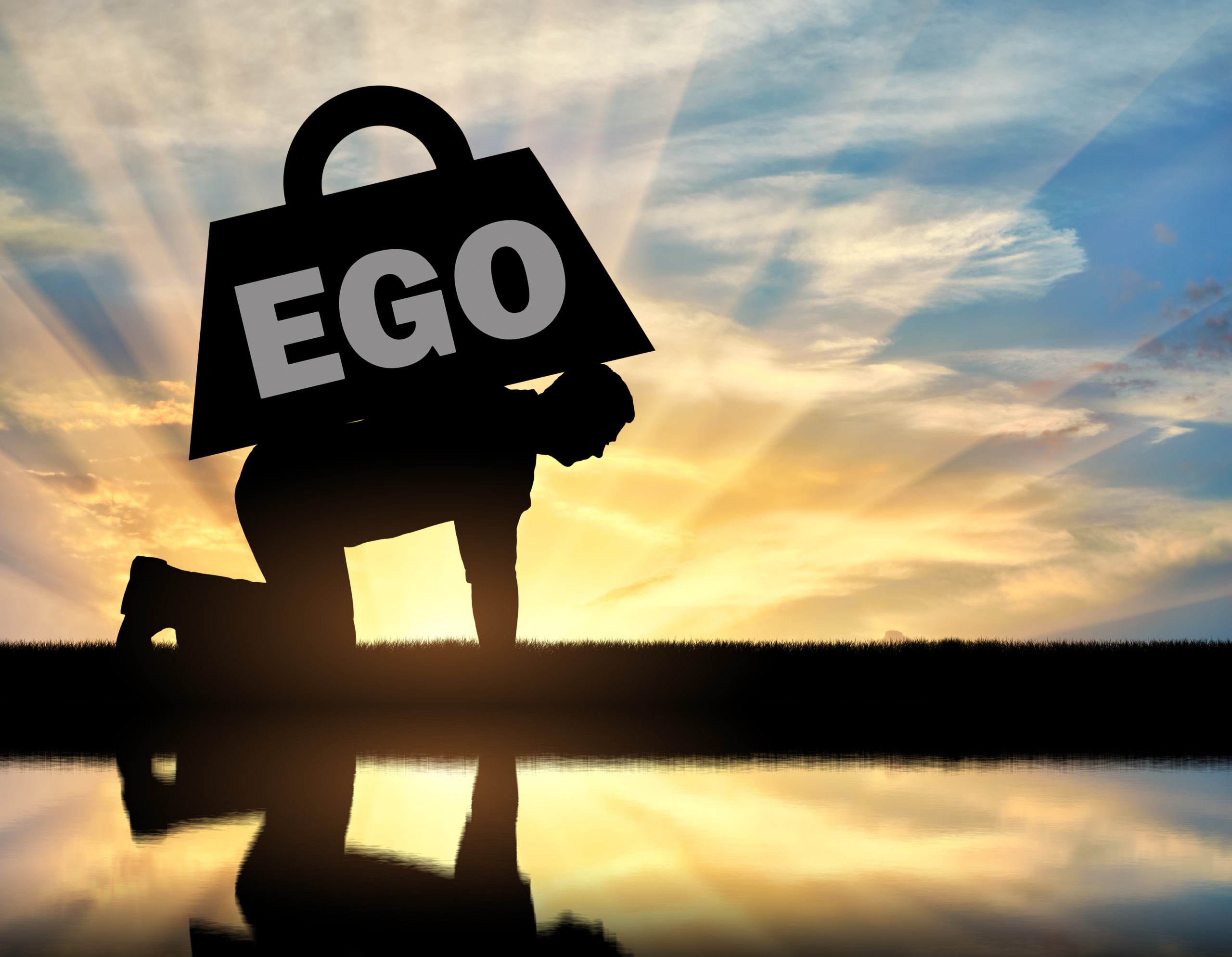Below is the transcription of the video – “Jesse Itzler’s Living with the Monks – Rainbow Helped Me Reclaim My Agenda”
Have you ever started your day off with the best intentions to get a lot done, to make a lot of progress on your goals, then the whole day goes by and you look back on the day and you realize that you didn’t make much progress at all on any of those projects or any of those goals you want to accomplish? In the book, Living With The Monks by Jesse Itzler, he talks about the distractor and distractions, and it’s really what has caused your whole day to slip by as you’ve allowed distractions to come into your day. And, you’ve lacked focus.
Jesse Itzler wrote the book Living With The Monks based on his experience of living with the monks of New Skete, which are these monks that train German shepherds who live with them for 21 days. One of the chapters that always sort of sticks out in my mind is this chapter called The Distractor. The monks train these German shepherds and they trained them in a way that they had to be very focused. And one of Jesse’s task, while he lived with the monks, was to help them train these dogs. But the way he helped them train them in this particular scenario in this chapter was the dogs were supposed to keep focused on their task. And Jesse’s job was to try to distract the dog and get the dog to lose focus.
So as this monk is walking the dog through this training center, Jesse’s going around making faces at it, waving at it, doing the fart trick, and doing all these things to distract the dog. But the dog never loses focus. And that dog’s name was Rainbow. Rainbow never lost focus. And what Jesse wrote about this is in our modern society, we tend to lose focus very easily. There are so many distractions out there and the distractions are really killing your productivity. You may be very busy during the day, but you have to ask yourself how productive are you? And it’s important that if you want to get something done, that you’re like that dog Rainbow and you focus on the task.
It’s critical to cut away as many distractions as possible and stay focused. And with me, I’ve had a little bit of a struggle with this because some of the distractors are people texting you, people calling you, people emailing you. So you kind of feel like you might be rude by not responding to these people, but they’re demanding your time and taking away from you accomplishing something that may have a larger impact than an immediate response to a text message. And the lack of focus also reminds me of when I was climbing this mountain, Mount Elbrus in Russia. It’s the highest mountain in Europe.
There was a time where I lacked focus and it almost cost me my life. Really. So I was climbing this mountain and with mountaineering, and this is what I like about mountaineering, it’s very challenging mentally and physically because you don’t have much oxygen because you’re at 18,000 feet or whatever. You’ve got a lot of gear. You’ve got the elements of cold. You’ve got a lot of skills you have to learn with ropes and you have all these things to consider. And it’s a long day, typically. Sometimes it’s a 20 hour day. So on this particular day, we were climbing up to the top of Mount Elbrus. You have to kick in these steps on the side of the mountain. So you have a platform in the snow to basically put each foot. And you have to kick pretty hard. So your foot has a solid platform. And then you kick in, you have one platform for your foot, you kick in the next one, you have another platform, you kick in the platform, et cetera.
With mountaineering and this particular climb, I was getting a little bit exhausted. So my focus was wandering a little bit. And I started thinking about other things rather than what I was doing, which was kicking these steps. So one of the steps I didn’t kick in enough and my footing slipped. I started like sliding down the mountain… And I was backward. I was sliding backward on my back and I was accelerating and I kind of snapped out of them and thought, “Man, I’m accelerating, I’m sliding down this mountain. I need to stop myself.” And they teach you to do a self-arrest with mountaineering. So I was able to like flip over, take my ice ax and drive it into the snow and drive my crampons into the snow and like stop myself from sliding down to the bottom of the mountain.
But if I didn’t stop myself, I would have kept sliding and hit something and died probably. But the whole reason I slid down a mountain is I lost focus. I allowed myself to get distracted by some of the thought that crept into my mind. It’s critical with anything you want to do in life to remain focused and cut away a lot of the things that are distracting you and not feel guilty. If you’re trying to accomplish something… And this is the problem is a lot of people have. If you’re trying to accomplish something big that requires your focus, you should not feel guilty about ignoring that text message, not responding to that email, not responding to that phone call. You can get to those later when you have time, but you don’t need to be immediately responding to everything.
With me, like climbing the mountain, I got distracted. I fell down, but I have been able to focus a lot and that’s allowed me to accomplish… I can easily get a cybersecurity certification or do a lot of things in a short amount of time because I 100% focused on that. I cut out the distractions. And as I mentioned, I used to feel a little bit guilty about cutting out the distractions because people will demand a lot of attention from you and they’ll suck the life out of you. So you have to put up some barriers in order to accomplish what you’re trying to accomplish.
 This blog post is a transcript from the video at the end of this post.
This blog post is a transcript from the video at the end of this post.
 Life is really meaningless. I know this sounds controversial, and some of you may be questioning what I’m saying. Some of you may have already turned this off. That’s fine. But the reality is the meaning of anything that happens to us, any experience we have, is a meaning we attach to it. So if we had a specific type of childhood, or we grew up in a specific type of environment, or we failed an exam, the meaning of that experience is the one we attached to it. There’s no native or inherent meaning in something. It’s simply the meaning we attach to it. So when I say life is meaningless, it means that life as a whole, there’s no meaning to it. We can attach whatever meaning we want, and the meaning we attach should be one that empowers us rather than locks us in a cage or cages us.
Life is really meaningless. I know this sounds controversial, and some of you may be questioning what I’m saying. Some of you may have already turned this off. That’s fine. But the reality is the meaning of anything that happens to us, any experience we have, is a meaning we attach to it. So if we had a specific type of childhood, or we grew up in a specific type of environment, or we failed an exam, the meaning of that experience is the one we attached to it. There’s no native or inherent meaning in something. It’s simply the meaning we attach to it. So when I say life is meaningless, it means that life as a whole, there’s no meaning to it. We can attach whatever meaning we want, and the meaning we attach should be one that empowers us rather than locks us in a cage or cages us. Hacked medical devices are quickly becoming a top security threat. From pacemakers to hospital equipment, anything that connects wirelessly can be compromised. In this episode of Komando on Demand, Kim looks into the myths and realities of medical device hacking and security. Kim talks to Christian Espinosa, the Founder and CEO of Alpine Security, about medical device security and what’s being done to make devices and hospitals more secure.
Hacked medical devices are quickly becoming a top security threat. From pacemakers to hospital equipment, anything that connects wirelessly can be compromised. In this episode of Komando on Demand, Kim looks into the myths and realities of medical device hacking and security. Kim talks to Christian Espinosa, the Founder and CEO of Alpine Security, about medical device security and what’s being done to make devices and hospitals more secure.
